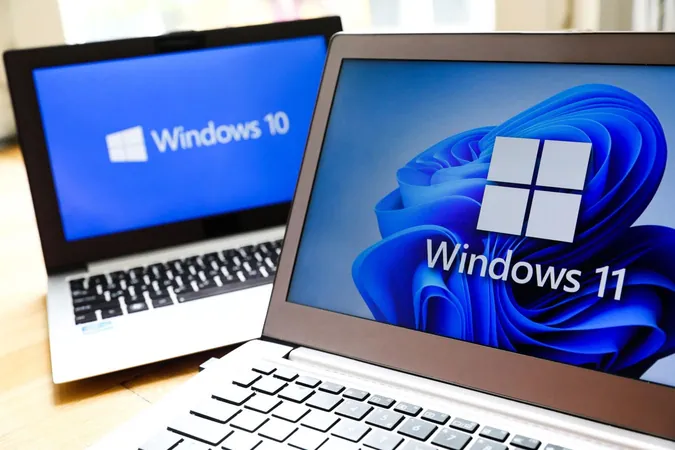
Urgent Warning: New Windows 0-Day Vulnerability Threatens Millions—Update Immediately!
2024-12-11
Author: Ting
In a shocking revelation, Microsoft has confirmed the existence of a zero-day security vulnerability that jeopardizes the safety of Windows devices, allowing full system compromise. The U.S. Cybersecurity and Infrastructure Security Agency (CISA), part of the Department of Homeland Security, has also confirmed this alarming threat. They've officially classified the security issue under their Known Exploited Vulnerability Catalog and issued a stern warning: this vulnerability poses “significant risks.” The agency is urging all users to take immediate action and update their systems now.
Understanding the CVE-2024-49138 Threat
The recent December Patch Tuesday has brought to light a staggering 72 vulnerabilities, including one that demands your urgent attention—CVE-2024-49138. However, details about this specific flaw remain sparse as Microsoft tends to withhold in-depth information about zero-day vulnerabilities to encourage prompt user patching. What is clear is that this vulnerability is classified as a heap-based buffer overflow, a severe memory security issue originating from the Microsoft Windows Common Log File System (CLFS) driver. This vulnerability is widespread, potentially affecting millions of users across various Windows operating systems.
Chris Goettl, Vice President of Security Product Management at Ivanti, highlighted the seriousness of the situation: “The vulnerability affects all Windows OS editions dating back to Windows Server 2008. Microsoft has rated it as Important, but risk-based prioritization suggests that it should be seen as Critical—making this month’s Windows OS update non-negotiable.”
CISA’s Alarming Recommendations
CISA has identified this vulnerability as a top priority and strongly advocates for all organizations to minimize their exposure to cyber threats by implementing timely remedial actions against this critical flaw. Their emphasis on prompt updates cannot be overstated, especially as the technical landscape continues to evolve rapidly.
The Grim Ransomware Implications
Microsoft’s acknowledgment of active exploitation scenarios for CVE-2024-49138 amplifies the urgency surrounding this vulnerability. Adam Barnett, Lead Software Engineer at Rapid7, pointed out, “This is the third consecutive month where Microsoft has revealed zero-day vulnerabilities on Patch Tuesday, yet none have been classified as critical at the time of release.” This raises essential questions about Microsoft's security protocols and response measures.
Barnett further explained that cybercriminals, particularly ransomware authors, have a soft spot for exploiting vulnerabilities like this one in the Common Log File System. “Expect more CLFS zero-day vulnerabilities to be uncovered in the future,” he warns. “Ransomware creators will undoubtedly exploit this fresh flaw until Microsoft undertakes the comprehensive task of overhauling the outdated CLFS codebase rather than merely patching individual flaws.”
What Should You Do Now?
The message is clear: all Windows users must act swiftly to safeguard their systems. Update your devices immediately to patch this vulnerability and protect your data from potential cyberattacks. The stakes are high, and in today’s digital age, cybersecurity should be everyone's top priority. Don’t wait until it’s too late—take action now!



 Brasil (PT)
Brasil (PT)
 Canada (EN)
Canada (EN)
 Chile (ES)
Chile (ES)
 España (ES)
España (ES)
 France (FR)
France (FR)
 Hong Kong (EN)
Hong Kong (EN)
 Italia (IT)
Italia (IT)
 日本 (JA)
日本 (JA)
 Magyarország (HU)
Magyarország (HU)
 Norge (NO)
Norge (NO)
 Polska (PL)
Polska (PL)
 Schweiz (DE)
Schweiz (DE)
 Singapore (EN)
Singapore (EN)
 Sverige (SV)
Sverige (SV)
 Suomi (FI)
Suomi (FI)
 Türkiye (TR)
Türkiye (TR)